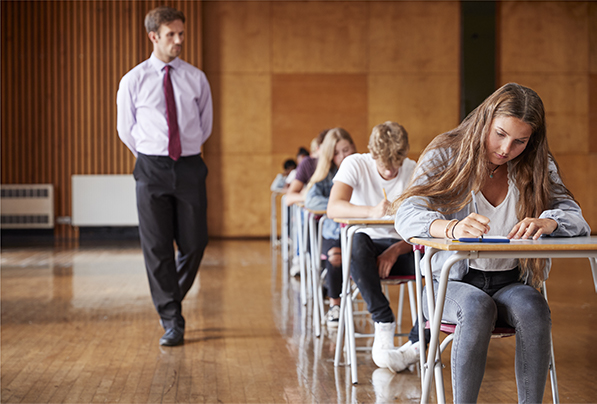Preparing Students for Exams: Not Just Memorization
Albert Einstein said, “Education is what remains after one has forgotten what one has learned in school.” Many times, students seem to focus their attention and energy on memorizing concepts and doing schoolwork in order to get good grades and do well on exams. But one can argue that after the papers are turned in, after the final exam has been graded, when they are not thinking about the next test, the knowledge remaining is what they have truly learned.However, grading and testing play a big role in today’s education and in how students progress. They can determine placing for gifted students, recognize students who are struggling, and they will affect college acceptance. So, the question remains, how can teachers help their students prepare for exams and get good grades while ensuring that they are truly learning, not just memorizing facts they will forget as soon as summer begins?
Teach critical thinking and deeper learning, not just memorization.
According to Linda Darling-Hammond of Stanford University, the focus on memorization, fueled by standardized testing, has obstructed learning. Rather than just learning facts out of a text, students need to be taught to use that information to solve problems and fuse “content knowledge with real-life situations.” This is called deeper learning, and the American Institute for Research has reported that these students perform better on traditional achievement tests as well as more complex assessments. They are also more likely to graduate and seek postsecondary education.
For many students, memorizing plays a big role in their education. However, many times it ends up acting as a way around learning, according to Ben Orlin, high school math teacher in California. He sees memorization as “a way of knowing without learning, of answering without understanding.” And while we cannot ignore the importance of factual knowledge, students need to learn to understand that knowledge and use it to reason critically. What’s the point of knowing the answer to a math equation if one cannot explain how they got there or recreate it with other variables? What’s the point of knowing what terms like glass ceiling or climate change mean if one does not understand how they are affecting the world today?
By teaching critical thinking and deeper learning, when the time comes for standardized testing, final exams, or college admissions tests, students will not only be prepared to answer vocabulary or factual questions but also explain the reasons and ideas behind them. Something that is truly understood will not be forgotten and will not wash away with the first pool day of summer. It will stay with them throughout the next school year and knowledge will continue to build, truly preparing them for college and the future.

